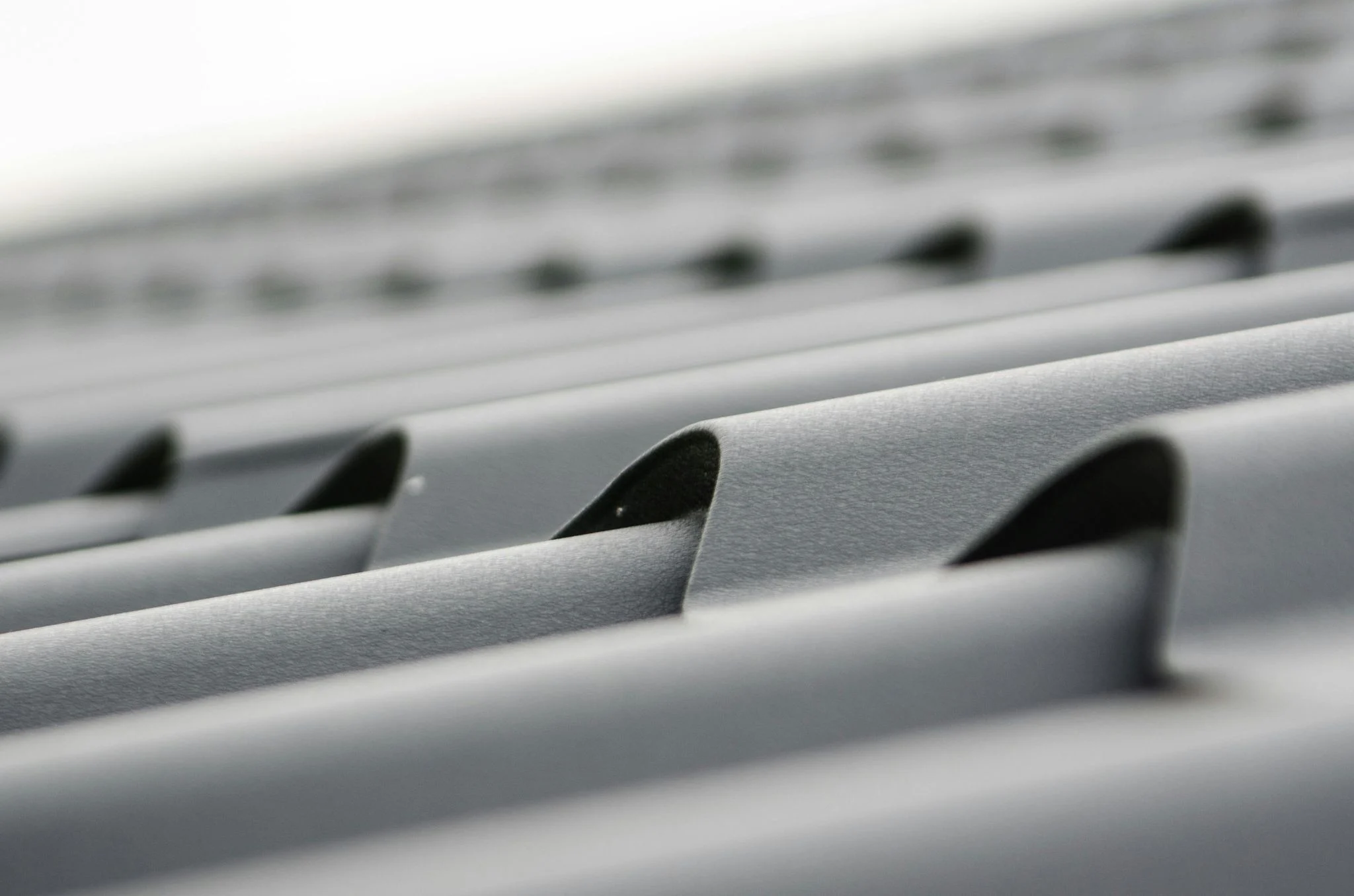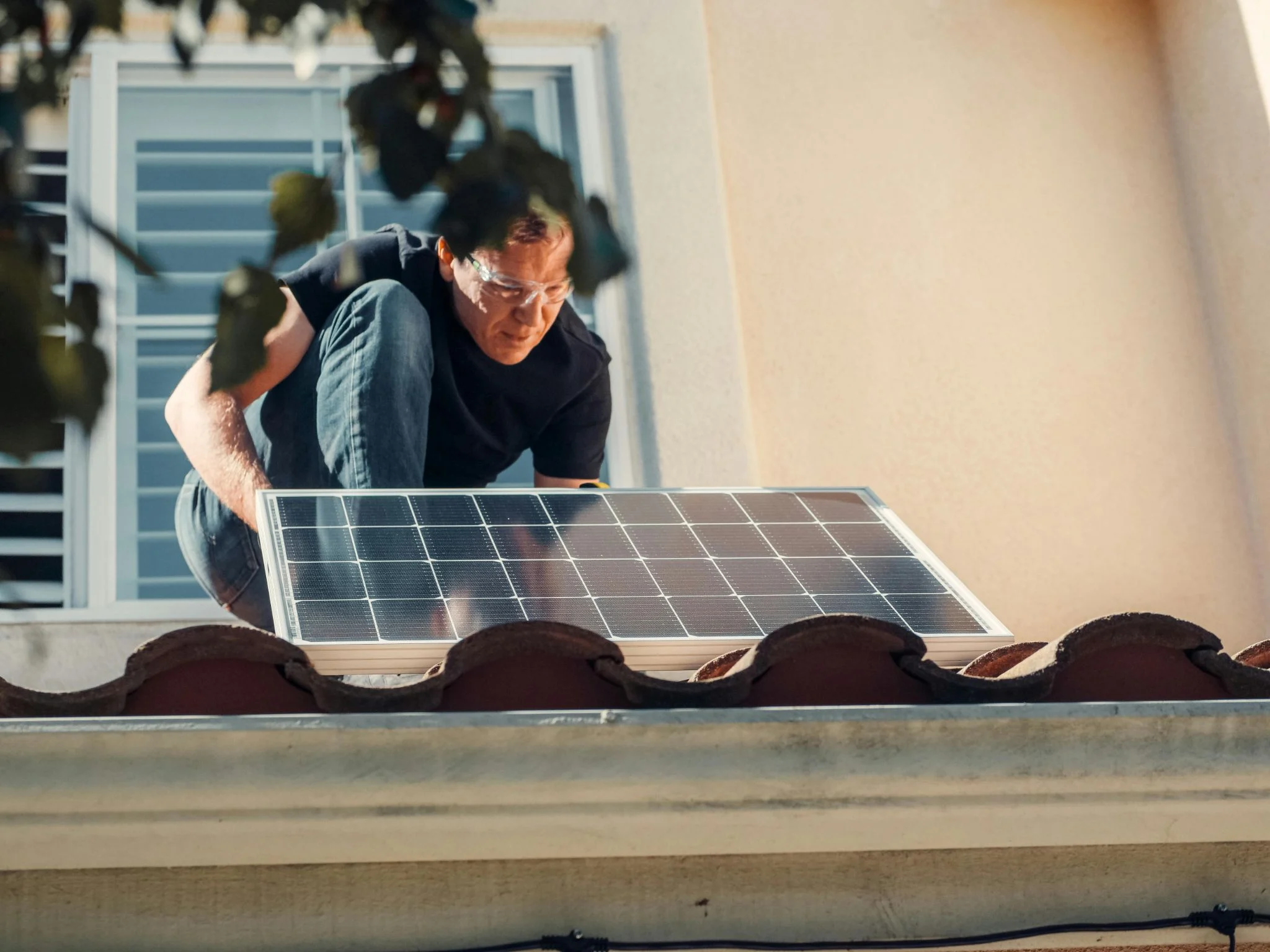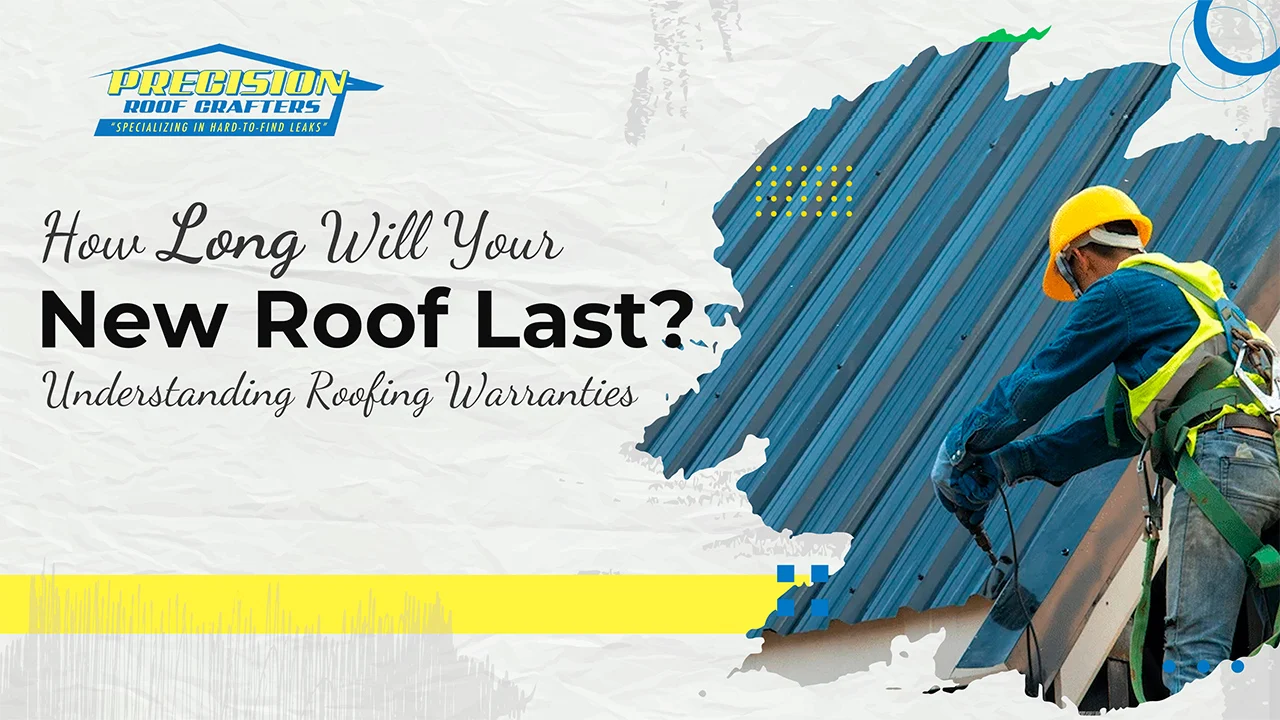Roof Lifespan
When it comes to maintaining the integrity and longevity of your home, your roof is one of the most critical components. A well-constructed and well-maintained roof not only protects your home from the elements but also plays a crucial role in your energy efficiency and overall comfort.
Given that roof replacement services or major roof repairs can be a significant financial investment, one of the most common questions homeowners ask is, “How long will my new roof last?” The answer to this question depends on various factors, including the type of roofing material, quality of installation, local climate, and how well you maintain your roof.
Understanding the expected lifespan of your roof, what factors can affect it, and how warranties play a role in protecting your investment will help you make informed decisions regarding roof maintenance, repairs, and future replacements.
In this blog, we’ll explore the typical lifespans of various roofing materials, how environmental factors impact your roof’s longevity, and the details of roofing warranties. We’ll also discuss how regular inspections and maintenance can extend your roof’s lifespan and when to consider roof replacement or roof repairs.
1. Understanding Roofing Material Lifespan
The type of roofing material you choose will largely determine how long your roof lasts. Roofing materials come in a variety of forms, each with its own set of advantages, disadvantages, and lifespan. Let’s look at some of the most common roofing materials and their expected lifespans.
Asphalt Shingles
Asphalt shingles are by far the most popular roofing material in the United States, accounting for nearly 70% of residential roofs. They are affordable, easy to install, and come in a variety of colors and styles.
- Lifespan: Asphalt shingles typically last between 15 to 30 years. The exact lifespan depends on factors like the quality of the shingles, your local climate, and whether the shingles are architectural or 3-tab.
Factors Affecting Lifespan
- Quality: Higher-end architectural shingles, which are thicker and more durable, last longer than standard 3-tab shingles.
- Climate: In areas with extreme temperatures or heavy rainfall, asphalt shingles may deteriorate faster. Coastal regions with salty air can also accelerate wear.
- Maintenance: Regular inspections and roofing repairs can extend the life of your asphalt roof by addressing small issues before they turn into major problems.

Metal Roofing
Metal roofs are growing in popularity due to their durability, energy efficiency, and long lifespan. Made from materials such as steel, aluminum, and copper, metal roofs are designed to withstand extreme weather conditions.
- Lifespan: Metal roofing can last anywhere from 40 to 70 years, with some materials like copper lasting up to 100 years with proper maintenance.
Factors Affecting Lifespan
- Material Choice: Steel and aluminum are more common and generally last 40-50 years, while copper and zinc can last much longer.
- Installation: Correct installation is essential to ensure that the metal roofing performs as expected. If poorly installed, metal roofs may become prone to rust or shifting.
- Maintenance: Although metal roofs require minimal maintenance, periodic checks for rust, debris, and loose fasteners can extend their lifespan.
Clay and Concrete Tiles
Clay and concrete tile roofs are popular in Mediterranean, Spanish, and Southwestern-style homes. Known for their aesthetic appeal and durability, these roofing materials are both environmentally friendly and long-lasting.
- Lifespan: Clay and concrete tile roofs can last 50 years or more, with proper installation and care. Some high-end tile roofs can last up to 100 years.
Factors Affecting Lifespan
- Climate: Tile roofs perform best in dry, warm climates. They can crack in areas that experience freeze-thaw cycles.
- Installation: Proper installation is crucial, as the tiles are heavy and can be prone to shifting if not correctly placed.
- Maintenance: While tile roofs require less maintenance, you must still check for damaged or cracked tiles that could lead to leaks.
Wood Shingles and Shakes
Wood shingles and shakes have been used for centuries, offering a natural and rustic appearance. These materials are typically made from cedar, redwood, or pine.
- Lifespan: Wood shingles typically last 20-30 years, while wood shakes can last up to 40 years with proper care.
Factors Affecting Lifespan
- Wood Type: Cedar is the most durable wood used for roofing, as it is naturally resistant to rot and insects.
- Climate: Wood roofs are best suited for dry climates. In humid or rainy areas, they can suffer from mold, mildew, and rot.
- Maintenance: Regular treatment to prevent decay and pest infestation can help extend the life of wood roofs.
Slate Roofing
Slate roofing is one of the most durable and aesthetically appealing roofing materials available. Known for its natural stone qualities, slate roofs have been used for centuries.
- Lifespan: Slate can last anywhere from 75 to 200 years, making it one of the longest-lasting roofing materials on the market.
Factors Affecting Lifespan
- Quality of Slate: High-quality slate roofs can last up to 200 years, while lower-quality slate may need replacement sooner.
- Installation: Proper installation is crucial since slate is fragile and can break if not handled carefully.
- Maintenance: While slate roofs require minimal maintenance, periodic inspections are important to ensure that tiles are not cracked or missing.

2. What Factors Affect the Lifespan of Your Roof?
While the roofing material plays a significant role in the overall lifespan of your roof, several other factors contribute to how long your roof will last. These factors include your local climate, the quality of installation, and regular maintenance practices.
Climate and Weather Conditions
Your roof is constantly exposed to the elements, and environmental conditions can significantly impact its longevity. For example, homes in areas that experience extreme temperatures, heavy rainfall, or frequent snowstorms will likely see faster roof wear than those in milder climates. The key weather-related factors that can affect your roof include:
- UV Exposure: Prolonged exposure to the sun’s UV rays can cause roofing materials to break down faster, especially asphalt shingles. This is why it’s important to choose materials that are UV-resistant.
- Rain and Humidity: Excess moisture can cause wood, asphalt, and even metal roofs to deteriorate over time. Constant moisture can lead to rust, rot, or algae growth, leading to leaks and other damage.
- Freeze-Thaw Cycles: In areas where temperatures fluctuate between freezing and thawing, water that enters your roof can expand when it freezes, causing cracks and other damage.
Installation Quality
The quality of your roof installation is another critical factor in determining its lifespan. Even the highest-quality roofing materials will not perform as expected if installed incorrectly. Poor installation can lead to leaks, sagging, and premature wear. To avoid these issues, always hire a reputable roofing contractor who uses industry-standard techniques and materials.
Maintenance and Inspections
Regular roof maintenance is essential for extending the life of your roof. Without periodic roof inspections and roof repairs, small issues can develop into major problems that shorten the lifespan of your roof. By maintaining your roof properly, you can catch minor damage early and avoid costly repairs down the line.
Some essential roofing maintenance tasks include:
Removing debris: Leaves, twigs, and other debris can trap moisture against your roof, leading to mold growth or rot.
Cleaning gutters: Clogged gutters can cause water to pool on your roof, increasing the likelihood of leaks.
Inspecting for damage: Checking for missing or damaged shingles, cracked tiles, or rusted areas can prevent minor issues from escalating.
3. Roof Warranties: What You Need to Know
One of the key considerations when installing a new roof is understanding the warranty that comes with it. Roof warranties are designed to protect you in the event of defective materials or installation, offering peace of mind and financial protection. However, there are different types of warranties, and it’s essential to understand what they cover.
Manufacturer’s Warranty
The manufacturer’s warranty typically covers defects in the roofing materials themselves. If a problem arises due to defective materials, the manufacturer may repair or replace the materials at no cost. Manufacturer warranties can range from 20 to 50 years, depending on the type of material. For example:
- Asphalt shingles typically come with a 20-30 year warranty.
- Metal roofing may come with a warranty of up to 50 years.
- Slate and tile roofs often come with lifetime warranties.
However, manufacturer warranties usually exclude damage caused by improper installation, weather-related events, or lack of maintenance.
Workmanship Warranty
A workmanship warranty covers defects due to poor installation. If your roofing contractor fails to install your roof properly, leading to leaks or other issues, this warranty ensures that they will fix the problem at no cost to you. Workmanship warranties generally last between 5 and 10 years.
What Roof Warranties Do Not Cover
It’s important to understand what roof warranties do not cover. Most warranties exclude:
- Natural Disasters: Warranties typically do not cover damage from extreme weather events, such as hurricanes, tornadoes, or earthquakes.
- Negligence: If your roof fails because you did not properly maintain it, the warranty may be voided.
- Cosmetic Damage: Minor cosmetic damage, such as fading or discoloration, is usually not covered under a roofing warranty.
Maximizing Your Roof’s Warranty
To ensure your warranty remains valid, it’s important to keep up with regular inspections and maintenance. In some cases, manufacturers or contractors may require proof that you have maintained your roof in good condition to honor the warranty. Keeping a detailed record of all inspections, repairs, and maintenance can help protect your investment and provide documentation if you ever need to file a warranty claim.

Precision Roof Crafters: Expert Solutions for Your Roofing Needs
A reputable roofing business that specializes in superior residential and commercial roofing solutions is Precision Roof Crafters. They have years of experience and offer professional roof installation, repair, and inspection services. Their staff of knowledgeable experts makes sure that every job is finished with care and using high-quality materials for longevity and energy efficiency. Precision Roof Crafters is dedicated to providing outstanding craftsmanship and client satisfaction, regardless of whether you’re dealing with a roof leak, require a complete roof replacement, or just wish to preserve the integrity of your roof. One roof at a time, they are committed to safeguarding your house.
Conclusion
Understanding how long your roof will last and how to care for it is crucial to protecting your home and your investment. From the type of material you choose to the quality of installation and ongoing maintenance, many factors influence the lifespan of your roof. Regular inspections, proper care, and timely roof repairs can help extend your roof’s life and keep it functioning properly for years to come.


